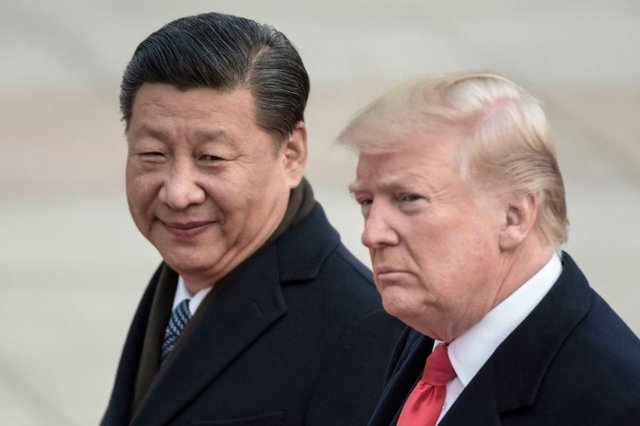Trade: Donald Trump keeps pressure on Beijing more than ever

Donald Trump has maintained maximum pressure on Beijing, ordering his services Friday night to initiate the procedure to impose tariffs on virtually all imports from China, at the risk of damaging global growth and destabilize financial markets.
Since the beginning of the week, the US president has oscillated between signs of appeasement and threats to the Asian giant.
He did not change Friday after an express session of negotiations in Washington.
After assuring that the discussions on trade with Beijing had been "frank" and "constructive", he put into effect the threat he had waved for several months.
"The president has ordered us to start the process of increasing tariffs on almost all the rest of China's imports, estimated at about $ 300 billion," said US Trade Representative Robert Lighthizer (USTR). a statement.
For his part, Chinese negotiator Liu He told Washington that trade talks with the United States will continue in Beijing indefinitely despite obstacles.
"The negotiations have not failed, on the contrary (the obstacles are) a normal turnaround in the negotiations (...) it is inevitable" between the two countries, Liu He told the Chinese media at the end of talks in the United States.
Several months
The launch of the procedure to tax the remaining 300 billion of imports is subject to public notification. In addition, the decision to proceed or not must be preceded by a period of consultation and comment.
The measure would therefore probably not be effective for several months.
This announcement is therefore more of a way of not loosening the grip on Beijing.
But it could also compromise the outcome of the negotiations. On this point, Donald Trump remained vague Friday, indicating that the discussions would continue but at an indeterminate date.
Nothing has filtered on the possible concessions of the Chinese side while the Trump administration lamented Monday that Beijing has returned on its commitments.
The Republican billionaire also entertained doubts about the future of additional tariffs that came into effect on Friday. These "could be lifted, or not," depending on the progress of "future negotiations", he simply tweeted.
Assuring that his relationship with his Chinese counterpart Xi Jinping remained "very strong," the US president also did not say whether he had spoken with him.
Washington would have given Beijing three to four weeks to seal a treaty, otherwise tariffs will spread to all imports from China (539.5 billion in 2018), had said earlier the agency said Bloomberg economic information, citing two sources close to the record.
Friday's discussions were particularly brief. Chinese Vice Premier Liu He, who headed the Chinese delegation, left the negotiating site just two hours after entering.
Clasping the hands of Trade Representative (USTR) Robert Lighthizer and Secretary of the Treasury Steven Mnuchin while greeting the reporters, he came out smiling without comment.
Playing the watch - "no need to rush" - Donald Trump had praised the benefits of US protectionist measures: "The tariffs will bring much more wealth to our country than a traditional agreement, even exceptional ".
Chinese retaliation
The increase in additional customs duties, applied since Friday, covers a myriad of goods (televisions, furniture, automobiles, etc.).
Beijing "will have no choice but to take necessary retaliatory measures," the Chinese Ministry of Commerce warned immediately.
"In a trade war, there are only losers," said Gregory Daco, an economist at Oxford Economics, echoing many economists. American consumers, fond of Chinese goods, should not be spared.
The International Monetary Fund (IMF) has been hammering for months that beyond the US and Chinese borders, the shock wave of a lasting conflict could reach the entire world economy.
But the Trump administration has remained deaf to the warnings, determined to refound the commercial relationship between the two countries, which argue no more and no less dominance in the technologies of the future.
It requires the reduction of the colossal US trade deficit with Beijing ($ 378.73 billion in 2018), "structural changes" such as the end of the forced transfer of technology, the protection of US intellectual property and the end of Chinese subsidies to state enterprises.
The announcement of the Trade Representative may cause the wrath of farmers weakened by the war of tariffs.
It should also be welcomed on the financial markets on Monday.
Especially in Beijing, the spokesman of the Chinese Ministry of Commerce Gao Feng warned: "China will not capitulate to the pressure."
Posted from my blog with SteemPress : https://z22news.com/trade-donald-trump-keeps-pressure-on-beijing-more-than-ever/
Trump is trying to break the economic interdependency between the U.S. and China. China knows his ultimate motive and is actively building trade alliances with other regions in the world - BRI is its grand vision for connecting all the nations together to build an expansive geography for sustainable trades.